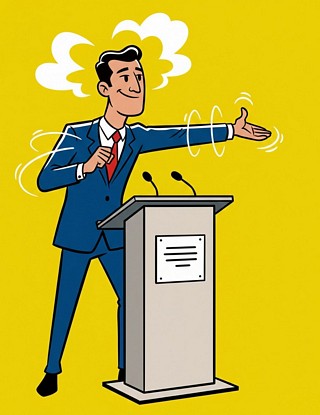
One of my favorite films is Rashomon (1950,) Akira Kurosawa’s masterpiece that gave psychology the term “The Rashomon Effect.” The film is famous for its structure: a single crime retold from multiple perspectives, each account contradicting the others. What emerges is not clarity but confusion, a reminder that memory, perception, and self-interest distort the truth. At its core, Rashomon is about unreliable narrators—characters whose versions of events are shaped as much by omission and self-deception as by fact.
Unreliable narrators transform messy realities into tidy, persuasive accounts. They smooth contradictions, omit inconvenient details, and present one interpretation as if it were the only truth. The result is a polished narrative that feels complete—even while concealing fractures.
This theme is hardly confined to Rashomon. Unreliable narrators and neat tales recur across cinema: Forrest Gump (1994,) The Usual Suspects (1995,) Fight Club (1999,) American Psycho (2000,) and Joker (2019) all show how fallible narrators can manufacture coherence and persuade audiences to accept a deceptively seamless version of events.
The problem lies in compromised credibility. Unreliability stems from self-deception, deliberate deceit, mental instability, or selective omission. These aren’t just stylistic quirks—they reshape the relationship between what is told and what actually happened. A neat narrative is rarely neutral; it reflects choices about emphasis and omission. Recognizing that neatness often signals construction is the first step toward resisting the illusion of completeness.
When a story feels too tidy, treat that neatness as a warning sign. Assume something is missing. Look for gaps in chronology, absent witnesses, sudden shifts in focus, or conveniently omitted facts. Silence itself can be evidence, and corroboration or alternative perspectives can turn absence into insight. Here’s how to read against the grain:
- Treat neatness as a warning sign. If a story feels too tidy, assume missing information matters. Gaps in chronology, absent witnesses, sudden shifts in focus, or conveniently omitted facts all carry meaning. Seek corroboration, alternative timelines, and outside perspectives to turn silence into evidence.
- Use inconsistencies as diagnostic tools. Contradictions reveal pressure points. Shifting memories, mismatched timelines, or actions that contradict stated motives expose where the constructed story begins to unravel.
- Assess incentives behind the polish. Every narrator has stakes—reputation, sympathy, control, or self-preservation. Those stakes shape which facts are highlighted and which are buried. Read emphasis and omission as strategic choices, and weigh what the narrator gains from presenting a clean version.
These habits of skepticism apply well beyond film criticism. Separate observation from interpretation, test for internal consistency, and consider incentives before accepting a neat account. This approach does not guarantee certainty, but it replaces passive acceptance with disciplined questioning.
Idea for Impact: The neat story is often the most dishonest. Truth is ragged, and only a fool mistakes tidiness for accuracy. Beware the narrator who makes it all add up.
.jpg)
 “Socrates and Plato were shocked by the sophists because they had no religious aims,” Russell observes, noting that many ancient Greek philosophers “founded fraternities which had a certain resemblance to the monastic orders of later times.” These philosophical schools—such as those established by
“Socrates and Plato were shocked by the sophists because they had no religious aims,” Russell observes, noting that many ancient Greek philosophers “founded fraternities which had a certain resemblance to the monastic orders of later times.” These philosophical schools—such as those established by  Phrases such as “look,” “here’s the deal,” and “here’s what you need to know” have become common preambles. Sometimes they’re harmless fillers, but often they’re micro-commands
Phrases such as “look,” “here’s the deal,” and “here’s what you need to know” have become common preambles. Sometimes they’re harmless fillers, but often they’re micro-commands  A lie is rarely noble. A truth without tact is often cruelty dressed up as virtue.
A lie is rarely noble. A truth without tact is often cruelty dressed up as virtue. In 2023, a video of the Dalai Lama interacting with a young boy at a public event in India ignited
In 2023, a video of the Dalai Lama interacting with a young boy at a public event in India ignited  November 20 is
November 20 is  There’s an old joke about the Soviet Union’s approach to industrial planning. It’s been told so often it’s
There’s an old joke about the Soviet Union’s approach to industrial planning. It’s been told so often it’s  Organizations often face a moral dilemma when confronting high-performing individuals—those rainmakers whose charisma and drive yield tangible results (Jack Welch’s
Organizations often face a moral dilemma when confronting high-performing individuals—those rainmakers whose charisma and drive yield tangible results (Jack Welch’s .jpg)
 Conscience isn’t as reliable a guide on moral questions as it’s often made out to be. Consider
Conscience isn’t as reliable a guide on moral questions as it’s often made out to be. Consider 
 The Stakhanov Movement capitalized on the collective desire for improvement and transformation, leading to increased productivity through better-organized workflows. However, as often happens, when metrics become the sole focus, they overshadow the true purpose of the work. In the Soviet system, the state had to ensure control over production, align workers’ efforts with central economic plans, and maximize output. Quotas played a key role in this strategy, setting mandatory production targets across various industries. Over time, these quotas became the primary measure of success, with workers judged by numbers rather than the quality or long-term impact of their efforts. Those who failed to meet the targets risked being labeled as “wreckers” and accused of sabotaging the system. Stakhanovites were celebrated as heroes, rewarded with media attention, lavish rewards, and even having their names immortalized on factories and streets.
The Stakhanov Movement capitalized on the collective desire for improvement and transformation, leading to increased productivity through better-organized workflows. However, as often happens, when metrics become the sole focus, they overshadow the true purpose of the work. In the Soviet system, the state had to ensure control over production, align workers’ efforts with central economic plans, and maximize output. Quotas played a key role in this strategy, setting mandatory production targets across various industries. Over time, these quotas became the primary measure of success, with workers judged by numbers rather than the quality or long-term impact of their efforts. Those who failed to meet the targets risked being labeled as “wreckers” and accused of sabotaging the system. Stakhanovites were celebrated as heroes, rewarded with media attention, lavish rewards, and even having their names immortalized on factories and streets.